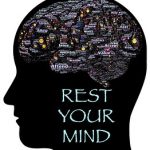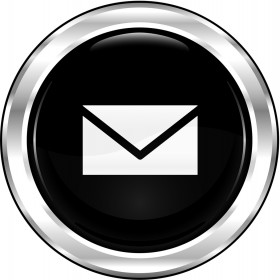Email addiction is one of the underlying causes of email and information overload. A constant theme in workshops over the past few weeks, has been thinking outside the inbox and using alternatives to email, be it for either communications or keeping track of the to-do-list. Many and especially Generation Z onwards are now hardwired to their mobile devices. Indeed some may have even lost the ability to write with anything other than a keyboard.
Yet, traditional writing implements are having a huge resurgence. There are websites dedicated to note books and sales of fountain pens are booming. Some would argue that pen and paper are for dinosaurs, but would you call Sheryl Sandberg one? She admits to using a traditional notebook and pen to keep track of her to-to-list and make quick notes.

BomoArt memo book – always to hand
Pen and paper has many advantages over technology some of which have been expounded in previous blogs. From a personal perspective the top five benefits are:
When is the notebook mightier than email and how can it help reduce email addiction and overload. Here are five ways I use my trusty notebook and fountain pen rather than email.
Yes, I do use OneNote but mostly to save web-related materials, links to web sites and digital pictures. Call me a dinosaur if you like, but in my view, pen and paper is often mightier than email and digital devices.
Good fortune too is on my side as BomoArt, one of the leading producers of fine stationary is my sponsor. One of their Memo books is always to hand and a leather bound journal serves as my day book.
Do you ever use pen and paper in preference to email? If so do tell us how and for what purpose.
Tags: BomoArt, email addiction, Notebook, Pen and Notebook

Books of Note
The last few months have been spent catching up with the backlog from November and December especially the Innovators by Walter Isaacson. In addition to a digital history lesson, it contains many lessons in how to manage technology innovation and the people associated with it. This month is a mix of new and old books which warrant mention.
New Books
Old Books
For a client assignment, I recently re-read two classics on change management. Both are short and written over ten years ago. However, the underlying themes and guidance on why and how to change still resonate. Indeed they feel even more current in today’s world where the pace of change is now so fast that if you take a month off you might find you need to re-skill or worse still extinct.
Tags: Books of note, Change management, Danah Boyd, Daniel Levitin, email addiction, information overload
Are you addicted to email which is leading to poor sleep and the ability to concentrate? Probably according to recent research from the Sleep Council and others.
Whilst Sheryl Sandberg in ‘Lean In’ urges us to work full on, others such as Arianna Huffington have recognised the effect lack of sleep can have on ones well being, creativity and overall productivity – see ‘Thrive: The Third Metric to Redefining Success and Creating a Happier Life’. If billionaire’s with all the support they need are struggling what hope is there for us mere mortals? France and Germany are attempting to address the situation by passing a law prohibiting managers sending employers work emails after 6.00 pm.

Reduce your email addiction
Yet in the 24x7x365 many feel they must remain connected at all times, a fact highlighted at several recent Smart Email Management workshops we have run over the last few weeks. Many feel that their clients expect them to be available and respond to emails no matter what time of day. But do they? Is this more about either a perception that they are the only ones who can deal with the situation whatever that might be or a chronic case of email addiction.
My personal opinion is that it is a combination of both which is damaging to ones work performance and personal life and not least your sex life. We all need a certain amount of privacy and down time. Here are my five top tips to improve the quality of both ones sleep and hence performance (at work and home) by switching off from email.
It’s interesting that research we conducted revealed that it is generally internal senders who expect the quickest reply. It is probably these internal senders who also are driving up the 24x7x365 culture and not the clients themselves.
What is your opinion? Do you ever disconnect from email for more than three hours? If so, what is the impact on you and your business?
If either you or your colleagues need help with email addiction please call us to help how we have helped others reduce their email addiction and improve their performance and work-life balance.
Tags: email addiction, email and sleep, Out of Office, performance, sleep depravation, VW, well being, Work life balance
Do you need to see each and every new email as it arrives? Do all emails carry the same value and importance for you and how you perform your job? No. That is judging by the responses from over 200 delegates on various workshops Mesmo Consultancy has run over the past few weeks. Less than 3% of participants confessed that there really would be a problem if they did not see an email within twenty minutes of its arrival in their inbox.
Bearing in mind your inbox is a picture of you and the role you perform, there are obviously some of you who are more at the sharp end than others. However, interestingly when pressed about who are these impatient and badly behaved senders, all bar one or two delegates confessed that it was an internal senior manager and not a customer/client who had such short email response time frames.
more at the sharp end than others. However, interestingly when pressed about who are these impatient and badly behaved senders, all bar one or two delegates confessed that it was an internal senior manager and not a customer/client who had such short email response time frames.
It would seem that by and large customers/clients actually do have a slightly longer fuse than we anticipate. They expect to wait an hour or two for a reply. They acknowledge that if it’s urgent a phone call might be better and that you as the recipient might not be at your inbox the minute they send their email.
So why do so many people let their days and life be dominated by the arrival of a new email – in some cases dropping an urgent task in favour of a new email? Some possible explanations are:
For those concerned that email addiction might be the cause, you can check yourself out using Mesmo Consultancy’s free email addiction benchmarking tool – click here to start.
For others here are our tip five tips to help you focus and stop being driven by email.
Tags: email addiction, email distractions, email response times, Mesmo Consultancy, Out of Office
How cleaning out your inbox can help reduce email addiction. Published in the Daily Echo 23 January 2014.
Tags: Clean Inbox, clean out your inbox week, Daily Echo, email addiction